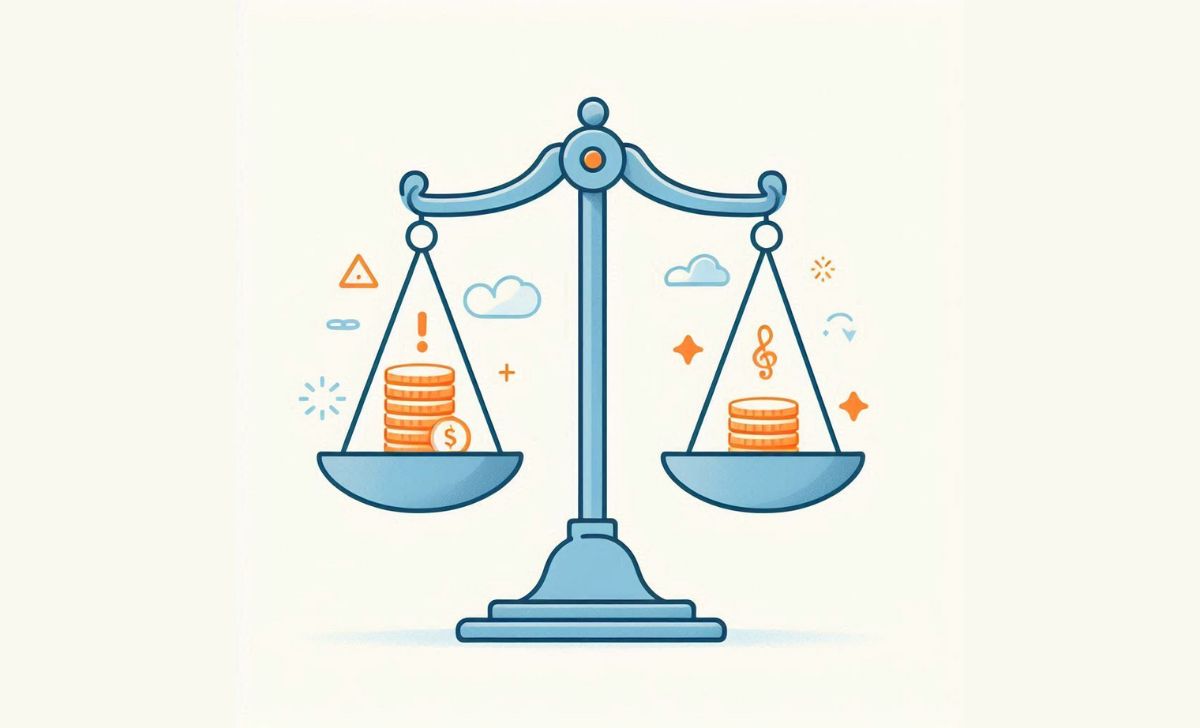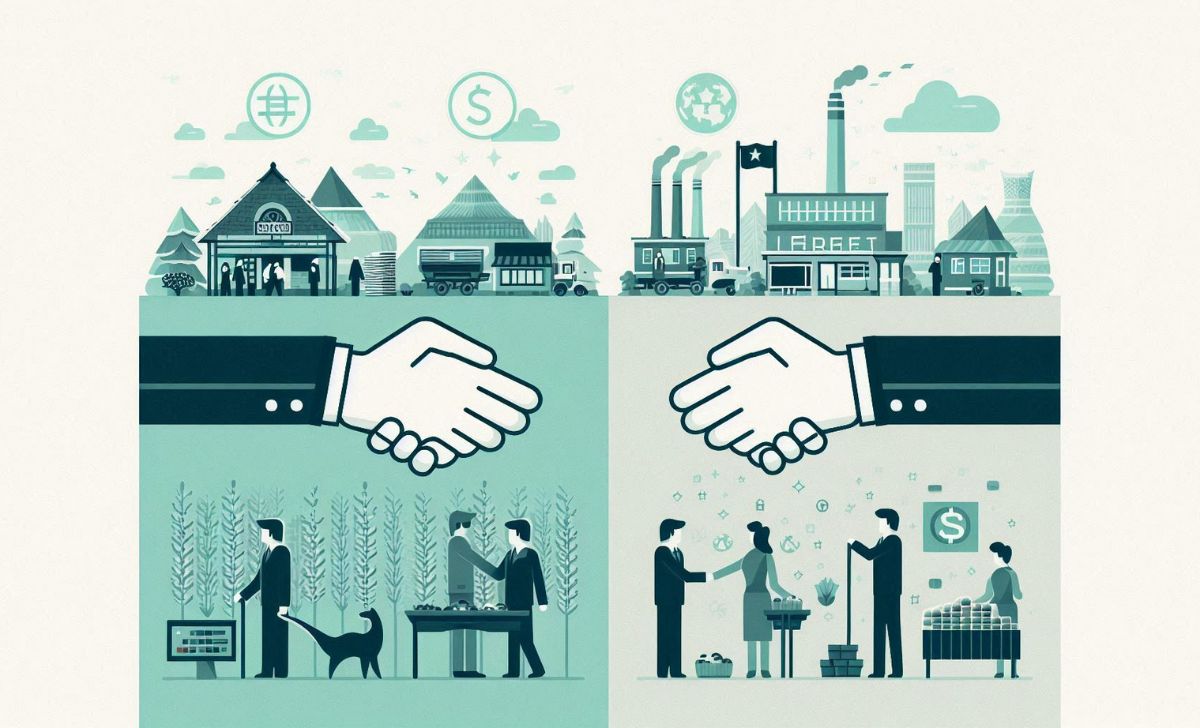A free enterprise system is an economic model where prices, production, and distribution of goods and services are determined by market forces rather than government intervention. This system is defined by private property rights, voluntary exchange, competition, and minimal state control, allowing individuals and businesses the freedom to make their own economic choices and pursue profit.
Continue reading this article on TOPCOIN9 to discover the meaning of a free enterprise system, its formal definition, and the key features that make it a cornerstone of modern market economies.
Free Enterprise System Meaning

A free enterprise system is an economic model where private individuals and businesses have the freedom to operate, own property, and compete in the marketplace with minimal government intervention. This system encourages innovation, consumer choice, and efficient resource allocation by relying on market forces such as supply and demand to determine prices and production. According to Wikipedia (2024), the free enterprise system is closely linked to capitalism and is characterized by voluntary exchanges, competitive markets, and the protection of private property rights.
Leading academic sources such as the University of Michigan emphasize that a free enterprise system promotes economic growth, entrepreneurship, and personal freedom, while government’s role is mainly to ensure fair competition and protect property rights (University of Michigan, 2023). This approach is widely adopted in many developed economies and is recognized for fostering prosperity and individual opportunity.
Now that you understand the basic meaning of the free enterprise system, let’s explore its precise definition from reputable sources.
Free Enterprise System Definition
A free enterprise system is an economic system where prices, supply, and production are determined by the market not by government intervention. In this system, private businesses and individuals have the freedom to operate competitively for profit, with minimal government regulation (Investopedia, 2025; Wall Street Prep, 2024). Key features include private property rights, voluntary exchange, competition, and the profit motive.
Related terms:
- Free market: An economy where supply and demand set prices and production with little or no government control (Investopedia, 2025).
- Laissez-faire: An economic philosophy advocating minimal government interference, allowing market forces to operate freely (Cornell Law School, 2023).
- Capitalism: A broader system where productive resources are privately owned and operated for profit, with free enterprise as a core component (Investopedia, 2025).
The American Heritage Dictionary defines free enterprise as “the freedom of private businesses to operate competitively for profit with minimal government regulation” (BYU, 2024). This system is foundational to capitalist economies, promoting innovation, efficiency, and consumer choice by relying on market mechanisms and limiting government intervention.
With a clear definition in mind, we can now examine the key features that set the free enterprise system apart from other economic models.
Key Features of the Free Enterprise System

The free enterprise system is characterized by several core features that distinguish it from other economic models:
- Market-Driven Prices: Prices for goods and services are set by supply and demand, not by government intervention, ensuring efficient resource allocation and responsiveness to consumer needs (Corporate Finance Institute, 2024).
- Competition: Businesses compete freely in the marketplace, which drives innovation, improves quality, and keeps prices in check. This competition is central to economic growth and consumer choice (Wall Street Prep, 2024).
- Private Property Rights: Individuals and businesses have the right to own, control, and transfer property, including land, resources, and intellectual property. This legal protection encourages investment and entrepreneurship (Campbell University, 2024).
- Economic Freedom: Both individuals and companies are free to make their own economic decisions, such as what to produce, how to produce it, and for whom, fostering creativity and diversity in the market (Wall Street Prep, 2024).
- Voluntary Exchange: Transactions occur voluntarily, with both buyers and sellers agreeing to the terms without coercion, promoting fairness and efficiency (Wall Street Prep, 2024).
- Limited Government Intervention: The government’s role is primarily to ensure fair competition, enforce contracts, and protect property rights, intervening only when necessary for public interest (Campbell University, 2024).
- Profit Motive and Entrepreneurship: The desire for profit motivates individuals and businesses to innovate, take risks, and improve efficiency, which benefits the entire economy (Campbell University, 2024).
In addition, understanding concepts such as marginal profit is essential for entrepreneurs in a free enterprise system, as it helps determine the most efficient level of production and maximize returns.
These features collectively foster a dynamic, innovative, and consumer-oriented economy, making the free enterprise system a foundation for prosperity in many developed nations (Corporate Finance Institute, 2024; Campbell University, 2024).
Having identified the core features, it’s important to consider both the benefits and challenges that arise within a free enterprise system.
Benefits and Challenges of the Free Enterprise System

The free enterprise system offers significant benefits, including economic growth, individual freedom, and innovation, but it also presents notable challenges that require careful management.
Benefits
- Economic Growth and Higher Living Standards: By allowing individuals and businesses to pursue their interests, the free enterprise system encourages innovation, investment, and increased productivity, leading to higher wages and improved quality of life (BTOES Insights, 2023).
- Individual Freedom and Personal Responsibility: People have the freedom to choose their careers, start businesses, and make economic decisions. This autonomy fosters self-reliance, accountability, and the opportunity to achieve personal success (BYU, 2024).
- Consumer Choice and Specialization: Consumers benefit from a wide variety of goods and services, while specialization enables individuals and businesses to focus on what they do best, increasing efficiency and product quality (BYU, 2024).
- Incentives for Excellence: The profit motive and competition drive companies and individuals to innovate and deliver quality products, benefiting the entire economy (BYU, 2024).
Furthermore, tools like blockchain can help ensure transparency and trust in market transactions, supporting the integrity of a free enterprise system.
Challenges
- Income Inequality: The system can lead to disparities in wealth and opportunity, as not everyone benefits equally from market outcomes (Investopedia, 2025).
- Market Failures and Unprofitable Goods: Essential goods and services that are not profitable may be underproduced or unavailable without government intervention, impacting vulnerable communities (Investopedia, 2025).
- Risk of Unethical Behavior: The focus on profit can sometimes encourage unethical practices, such as neglecting worker safety or environmental standards, if not properly regulated (Investopedia, 2025).
- Economic Instability: Without government safeguards, the system is more susceptible to severe market downturns and business failures, which can have widespread negative effects (Investopedia, 2025).
While the free enterprise system is a powerful engine for prosperity and innovation, it requires a balance of regulation and oversight to address its inherent challenges and ensure equitable, sustainable growth.
To provide a broader perspective, let’s compare the free enterprise system with other major economic systems around the world.
Comparison with Other Economic Systems

The free enterprise system stands apart from other economic systems such as socialism and mixed economies by prioritizing market-driven decision-making, private property rights, and minimal government intervention. In a free enterprise (or free market) system, prices, supply, and production are determined by supply and demand, allowing businesses and consumers maximum freedom and flexibility (Investopedia, 2025).
- Capitalism vs. Free Enterprise: While often used interchangeably, capitalism refers broadly to private ownership of resources, whereas free enterprise specifically emphasizes competitive markets and limited government regulation. Both systems rely on voluntary exchange and consumer choice, but free enterprise places a stronger focus on market efficiency and innovation (Wall Street Prep, 2024).
- Socialism: In contrast, socialism is characterized by public or collective ownership of the means of production and central planning by the government. Economic decisions, including pricing and resource allocation, are made by the state to achieve social objectives, often limiting individual and business freedom (Boston University, 2024; Study.com, 2024).
- Mixed Economic Systems: Many modern economies blend elements of both free enterprise and socialism. In mixed systems, private property and market mechanisms coexist with government intervention to address social welfare, regulate certain industries, and provide public goods (Investopedia, 2025).
While the free enterprise system fosters innovation, efficiency, and consumer choice, it can also lead to income inequality and market failures if not balanced by appropriate regulation. Mixed and socialist systems, meanwhile, may offer greater social safety nets but often at the expense of economic freedom and efficiency (Investopedia, 2025; Boston University, 2024).
In summary, the free enterprise system stands as a cornerstone of modern economic prosperity, empowering individuals and businesses with the freedom to innovate, compete, and pursue success with minimal government interference. By understanding its meaning, definition, key features, and how it compares to other economic systems, you can better appreciate the advantages and challenges this model brings to society.
For more in-depth insights on economics, markets, and financial strategies, continue exploring the expert resources at TOPCOIN9. Stay informed and empowered on your journey to financial success with TOPCOIN9 as your trusted guide.

As a certified blockchain security expert with over 8 years in cybersecurity, James Anderson specializes in auditing smart contracts and identifying vulnerabilities in DeFi protocols. His expertise ensures that TopCoin9 delivers reliable insights on blockchain security and risk management.
Email: [email protected]












